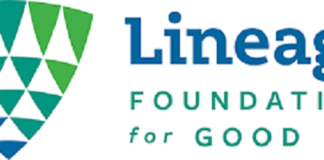
By Angela Spivey and Sam Jockel, attorneys, Alston & Bird
Over the past several years, the food and beverage industry has had to navigate a changing regulatory, litigation, and economic landscape – and should be prepared for new developments in 2024. Here are some of the top issues companies should watch out for heading into 2024.
New targets in consumer class action labeling litigation
The number of food and beverage consumer class action filings has more than doubled over the past ten years, with a significant uptick in filings over the past few years. TTB-regulated alcohol beverages, environmental marketing claims, and products allegedly containing unsafe substances were all targets in 2023. We expect no slowdown in the number of lawsuits filed – and the industry should be prepared for continued expansion into new target areas and innovative theories that underpin deceptive advertising challenges.
FDA’s revised definition of “healthy”
The FDA has yet to issue a final rule revising its definition for the implied nutrient content claim, “healthy,” but the proposed rule, issued in September 2022, would significantly change the types of products that would qualify for making a “healthy” claim. In an effort “to be consistent with current nutrition science and Federal dietary guidance,” the FDA’s proposed rule leverages the Dietary Guidelines for Americans, 2020-2025 to update the definition of “healthy.” Among the proposed changes to the existing criteria for making a “healthy” claim, the proposed rule would require foods to contain a certain amount of food from specific food groups (e.g., dairy, vegetable, fruit) and meet specific restrictions on saturated fat, sodium, and added sugar. There was vehement opposition to several aspects of the FDA’s proposal in public comments, including the way the agency structured its proposed food group requirements and the proposed added-sugar thresholds. Stakeholders should monitor for a final rule in 2024.
Focus on chemicals of interest – food additive and food contact substances
From heavy metals to PFAS to BPA, food and beverage manufacturers saw a flurry of activity tackling allegedly unsafe food additives and food contact substances in 2023 – with regulators and consumer class action lawyers alike getting in on the action. The focus on various substances of concern has extended not only to direct food additives (with, for example, California enacting a ban on certain ingredients in food and beverage products) but also to food packaging, with a number of states enacting restrictions on the presence of PFAS. With the appointment of James Jones as the first deputy commissioner for human foods, we expect the FDA to take a more active role in regulating exposure to contaminants and chemicals in food and food packaging, given Jones’ prior experience at EPA. Stakeholders in the food and beverage industry should continue to monitor for developments out of regulatory agencies, state enforcement actions, and consumer class action challenges involving various substances of interest.
Inflation impacts and continued supply-chain challenges
Higher costs of transportation, ingredients, and raw materials, among other things, has led to higher prices at the grocery store and at restaurants. Economic inflation has impacted the entire food and beverage supply chain and has led manufacturers to modify formulations, seek more flexibility with current suppliers, and look to new suppliers to ensure their supply chains remain nimble in the face of a changing economic environment. As we move into 2024, we expect the food industry to continue building scalable supply chain systems that can withstand a shifting economic landscape.
Conclusion
If past is prologue, heading into 2024, regulatory oversight from states and federal regulators is likely going to continue to increase and plaintiffs are likely to find new class action labeling targets. In addition to ensuring compliance with a patchwork of regulatory requirements at both the state and federal levels and mitigating risk of products being targeted in litigation, food and beverage companies will need to continue navigating a changing economic landscape as they aim to meet consumer demand in the new year.
Angela Spivey and Sam Jockel are attorneys in Alston & Bird’s Litigation & Trial Practice Group and members of the firm’s Food & Beverage Industry team.








